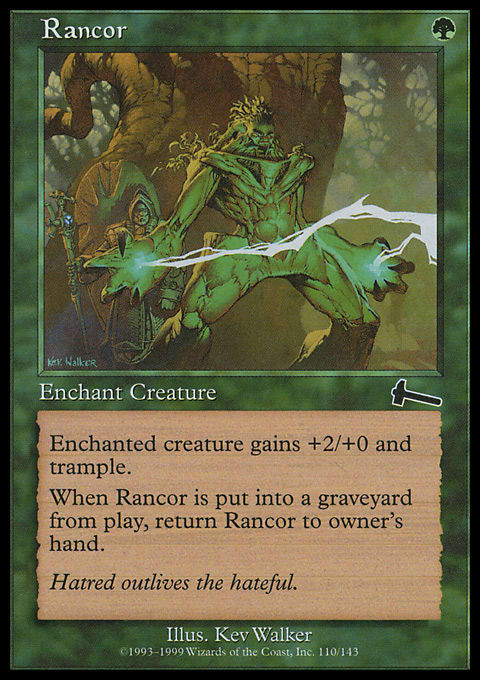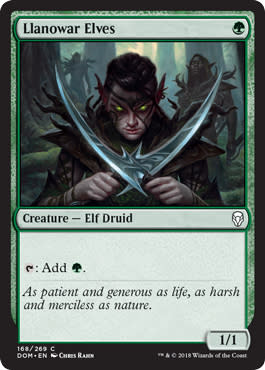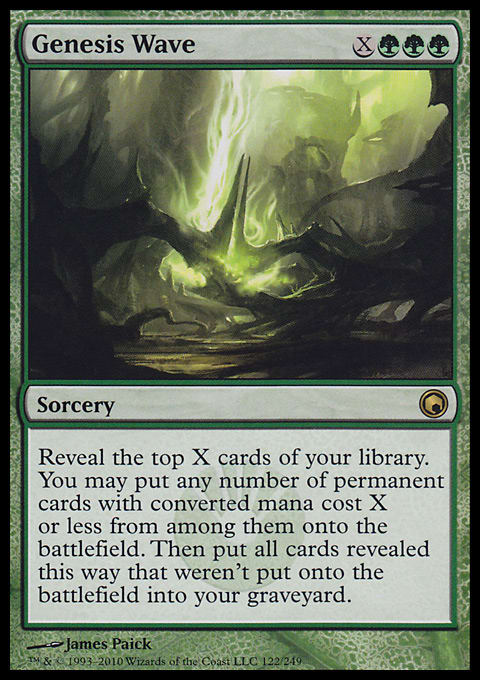When I began the MTGO Hero article series, I understood that it wouldn’t be easy to accomplish my goals. I could see the roadblocks ahead, but I was ready to face the challenge. Many people believed that it couldn’t be done with such limited resources. I wanted to prove that it could. Putting it that way . . . it actually sounds like a bad reality television show.
I must admit that it had become even more difficult than I had anticipated. I made several mistakes along the way and had learned a great deal from them. Yet every small success was followed by multiple failures. It was like an intense roller-coaster ride that was quickly running out of track.
End of the Line
After last week’s loss, I was scraping by with 10.01 tickets worth of funds remaining. That was only enough for one more Daily Event and would leave me with 4.01 tickets. I had few cards left that I would be able to sell, but I could possibly stretch my funding out enough for two events.
One thing was certain: I didn’t have enough funds to purchase any additional cards. I needed to be able to rely on the current build of my deck if I was going to be successful. I had already piloted it to a win and could only hope to repeat that success.
I playtested several matches in the Tournament Practice room, and I was having very good results. Bonfire of the Damned continued to be a problem, but there was very little that I could do about it at that point.
This is the deck that would once again be leading me to victory:
"ElfHero1.1.dek"
- Creatures (30)
- 1 Craterhoof Behemoth
- 1 Soul of the Harvest
- 1 Wolfir Silverheart
- 3 Copperhorn Scout
- 4 Arbor Elf
- 4 Dungrove Elder
- 4 Elvish Archdruid
- 4 Elvish Visionary
- 4 Llanowar Elves
- 3 Adaptive Automaton
- 1 Ezuri, Renegade Leader
- Spells (10)
- 2 Green Sun's Zenith
- 4 Genesis Wave
- 4 Rancor
- Lands (20)
- 20 Forest
- Sideboard (15)
- 2 Blunt the Assault
- 1 Champion of Lambholt
- 1 Viridian Corrupter
- 3 Ground Seal
- 1 Melira, Sylvok Outcast
- 4 Ezuri's Archers
- 3 Witchbane Orb
Equipped with my winning deck, I entered another Daily Event, ready for battle.
Standard 4-RND (Event #4278744)
Round 1 vs. U/B Zombies
Game 1 – This was a very close game. My opponent had been punching me in the face with two Geralf's Messengers and a Gravecrawler, while I was hammering him with a Dungrove Elder enchanted with three Rancors.
He played a Blood Artist a turn too late. I attacked with my Elder and played a second Elder as a blocker. My opponent attacked again, hoping I would block one of the Messengers. I blocked the Gravecrawler instead, and his attack brought me down to 2 life.
I then attacked FTW.
Game record: 1–0
Sideboard:
−2 Genesis Wave
Game 2 – This was the first game in which I regretted having Blunt the Assault in my hand. My opponent’s removal was able to kill off everything except for my Dungrove Elder. I hadn’t drawn a Rancor or any other way to push damage through, which meant that all I was able to do with Blunt the Assault was buy a small amount of time. It didn’t pay off, and I was quickly overwhelmed by my opponent’s army of Zombies.
Game record: 1–1
Sideboard:
Game 3 – My opponent had played two Blood Artists in a row and followed them with a Skinrender to kill my Adaptive Automaton. I had an Elvish Visionary and a 7/5 Dungrove Elder (enchanted with a Rancor) in play.
I played a Witchbane Orb, which apparently wrecked his whole game plan because he conceded immediately after.
Game record: 2–1
Match record: 1–0
I had thought about the possible benefit of Witchbane Orb against Zombies, but this was the first time I had been able to put it to use. It shuts off a great deal of the damage potential of the deck and renders Blood Artist completely ineffective.
Round 2 vs. W/U Delver
Game 1 – My opponent played a Delver of Secrets on each of his first two turns. He then blind-flip transformed them on turn three and began pounding me for 6 damage each turn. He was also able to hold off my attacks on the ground with a Blade Splicer and Golem token. The game was over before I knew what hit me.
Game record: 0-1
Sideboard:
−1 Genesis Wave
Game 2 – This game was much different than the first because my opponent’s first Delver was able to transform on turn two instead of on turn three. Once again, his second Delver transformed on turn three and joined its brother in smashing my face.
Fortunately for me, I was able to play Ezuri's Archers to protect me from the Insectile Aberrations. Unfortunately for me, my opponent cast Vapor Snag to return the Archers to my hand and finish me off.
Game record: 0–2
Match record: 1–1
I had played Delver many times and expected a tough fight every time, but that match was different. The Delver player had God hands both games, and he said as much to me after the round was over. It was one of those times when variance simply got the best of me. Sometimes I benefit from it, and sometimes I don’t. The important thing is to recognize when it happens and move on.
Round 3 vs. Mono-Green
Game 1 – My opponent started off very aggressive with a Llanowar Elves, two Strangleroot Geist, and two Rancor. I was just trying to build my board with a Copperhorn Scout, Arbor Elf, and Elvish Archdruid.
On turn four, he had attacked me down to 4 life. I then played Craterhoof Behemoth and attacked for 17 and the win.
Game record: 1–0
Sideboard:
−2 Genesis Wave
Game 2 – My opponent had done some early damage, but he ran out of gas. My army of Llanowar Elves, an Elvish Archdruid, Ezuri, Renegade Leader, and an Adaptive Automaton were too much for him to handle.
Game record: 2–0
Match record: 2–1
His deck had the potential to be quick, but it wasn’t as quick as Elves. That was the reason I had made the switch to the Elf deck in the first place.
I was so close to winning the prize that I could taste it. If I won the next round, I would buy myself some serious breathing room.
Round 4 vs. Naya (Pod?)
Game 1 – This was a God draw for me, and I quickly overwhelmed my opponent. I was able to cast a Genesis Wave for 8 on turn four, which increased the size of my army of Elves. On the following turn, I cast Green Sun's Zenith to fetch a Craterhoof Behemoth. My opponent then conceded.
Game record: 1–0
Game 2 – My opponent used two Oblivion Rings to remove my Elvish Archdruids and any hope I had of being in the game. His Blade Splicers and their Golem tokens were beating me down hard, and he flashed in a Restoration Angel to rub salt in my wounds.
Game record: 1–1
Sideboard:
−2 Genesis Wave
Game 3 – It was the final game, and of course I opened a hand with no lands in it. My mulligan to six wasn’t much better, with five Forests and a Genesis Wave. In fact, I had to mulligan down to three before I even had a remotely acceptable opening hand.
A turn-two Blade Splicer was all my opponent needed to put the game away. I was never able to recover from my early setback, and he took the game easily.
Game record: 1–2
Match record: 2–2
Wrapping Up
Another loss meant that I had a difficult decision to make. Do I attempt to scrape up 2 more tickets to play in one additional event? Would I be better to sell off the cards I have now and buy in to Pauper for a couple of weeks in an attempt to make a comeback? Or should I simply accept my defeat and restart my journey from the beginning with all of the experience I have gained along the way?
These are the questions that I need to find the answers to over the next few days. Will next week be one last hurrah, or will I be in the filthy gutters of Pauper? Will I be giving a recap of all that I learned walking down the MTGO Hero road and start off fresh with a shiny new deck?
Give me your thoughts, and check back next week to find out what I decide!
Until then,
– Tangent was here . . .


























